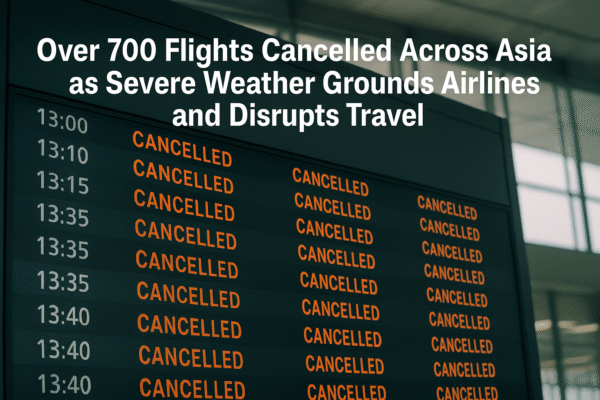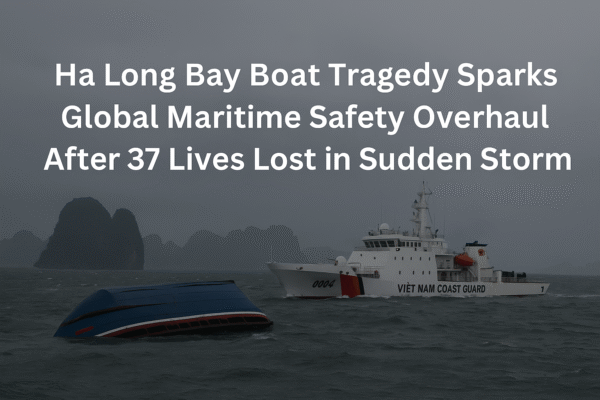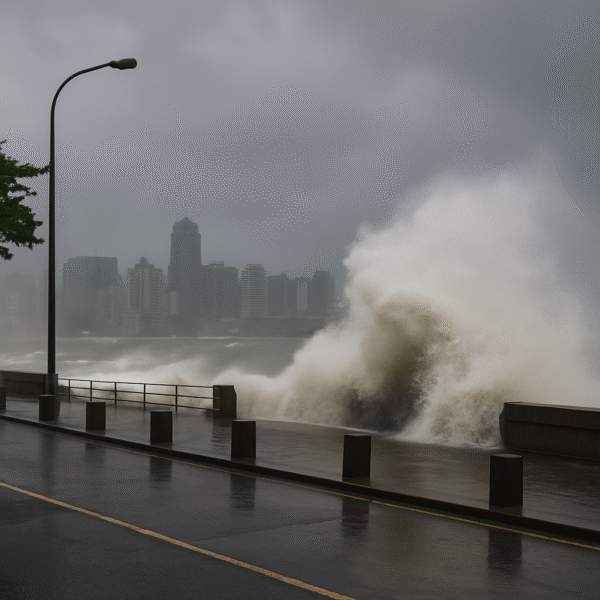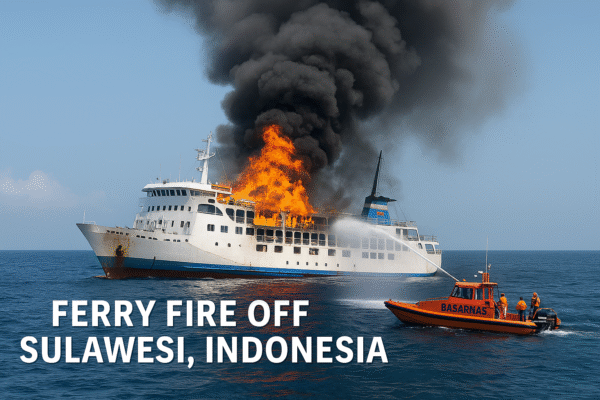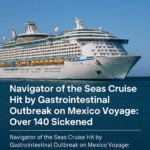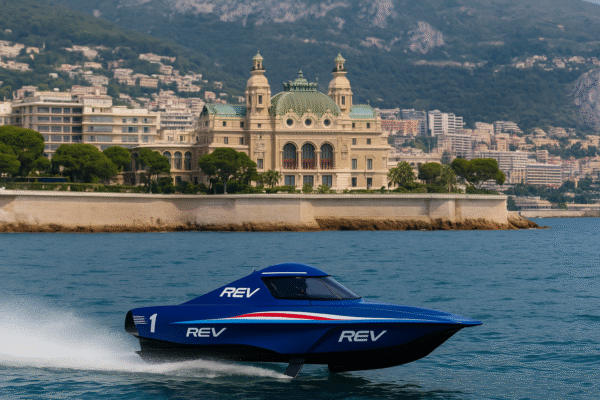A devastating fire aboard a passenger ferry off the coast of Sulawesi, Indonesia, has claimed the lives of three individuals and led to the dramatic rescue of over 500 people. The vessel, KM Barcelona 5, was en route to Manado when flames erupted at the rear of the ferry on Sunday, July 21, 2025. The disaster triggered a large-scale emergency operation by the Indonesian Coast Guard and national rescue agency (Basarnas), raising urgent questions about maritime safety across the sprawling Indonesian archipelago.
Emergency Response Saves Hundreds in Open Waters
Thick black smoke billowed from the vessel as terrified passengers jumped overboard, many donning life jackets before plunging into the surrounding waters. Swift action by Indonesia’s Basarnas and the Coast Guard helped avert a much larger tragedy. Search and rescue teams, supported by local fishing boats and government vessels, successfully pulled 568 people from the water.
Initial reports had stated five fatalities; however, this was later corrected to three confirmed deaths after the situation stabilized. Rescue personnel remain on high alert as the search for missing individuals continues in the waters off North Sulawesi. Family members seeking information are being urged to contact the Manado Rescue Post, which remains operational 24/7.
Passenger Log Discrepancy Sparks Safety Concerns
A critical point of concern arising from this incident is the discrepancy between the ferry’s passenger log and the number of people rescued. The ferry’s manifest indicated just 295 individuals, including crew. However, rescue teams recovered nearly double that number, prompting suspicion that the vessel was overloaded—an ongoing issue in Indonesia’s ferry transport sector.
Local authorities, in coordination with the Ministry of Transportation, are investigating whether the KM Barcelona 5 violated passenger capacity limits. If confirmed, this would be another instance highlighting the widespread issue of poor compliance with safety regulations across the country’s ferry operators.
Indonesia’s Ongoing Maritime Safety Crisis
With more than 17,000 islands and millions relying on ferries for daily transport, Indonesia is particularly vulnerable to maritime disasters. Despite past pledges to strengthen safety oversight, accidents remain alarmingly frequent. Recent tragedies include a ferry sinking near Bali in early 2025, killing 19, and the 2018 Lake Toba disaster, where more than 150 people lost their lives.
Common causes of these disasters include overcapacity, lack of adequate life-saving equipment, untrained crew, poor vessel maintenance, and outdated safety protocols. The KM Barcelona 5 fire is the latest reminder that more rigorous regulation, enforcement, and training are necessary to prevent avoidable tragedies.
What Caused the Fire?
While the full cause remains under investigation, preliminary reports suggest the fire may have originated from an electrical malfunction near the engine room. Witnesses described hearing an explosion before the fire rapidly spread. The Ministry of Transportation has dispatched forensic teams and engineers to examine the wreckage once it’s deemed safe.
Transport Minister Budi Karya Sumadi issued a public statement pledging full accountability. “We will review operator licenses, audit safety compliance, and evaluate all mechanical systems on vessels operating in the region. The safety of our citizens is non-negotiable,” he said.
International Reactions and Travel Implications
The incident has also attracted attention from regional governments, with travel advisories updated for Sulawesi-bound tourists. Canada, Australia, and the United Kingdom have reiterated the need for vigilance when using ferry services in Southeast Asia. While Sulawesi remains a destination of natural beauty, including diving resorts and volcanic mountains, tourists are being advised to verify the safety credentials of local transport providers.
Cruise tourism companies operating in nearby areas are also monitoring the situation. Travel forums and embassies are urging travelers to avoid ferry services that are not regulated under Indonesia’s enhanced safety compliance scheme introduced in 2023.
Rebuilding Trust: A Path Toward Safer Seas
As Sulawesi recovers from this tragedy, Indonesian authorities face mounting pressure to not only investigate this incident thoroughly but also enforce lasting reforms. These include:
- Real-time digital passenger manifests to ensure accurate boarding records
- GPS tracking systems for all commercial vessels
- Random safety inspections with public reports
- Mandated fire drills and emergency evacuation training for ferry crews
- Penalties and license suspensions for overcapacity violations
Ferry operators, too, must take more responsibility in ensuring their vessels are equipped with fire suppression systems and functioning life-saving equipment. Maritime NGOs in Indonesia have called for an independent review panel to assess port authority accountability and operator transparency.
Final Thoughts: A Tragedy and a Turning Point
The KM Barcelona 5 ferry fire is a national tragedy but also a wake-up call. While the swift rescue of hundreds showcased Indonesia’s improved response capabilities, the underlying systemic flaws that allowed this incident to occur must now be confronted with urgency and resolve.
For residents and tourists alike, ferry travel remains one of the few ways to navigate Indonesia’s vast island network. But without rigorous reforms and transparent safety policies, the lives of countless passengers will continue to hang in the balance.
As recovery operations continue off the coast of Sulawesi, the Indonesian government has a renewed chance to demonstrate leadership—and to deliver real safety to the seas it governs.
For more travel news like this, keep reading Global Travel Wire





